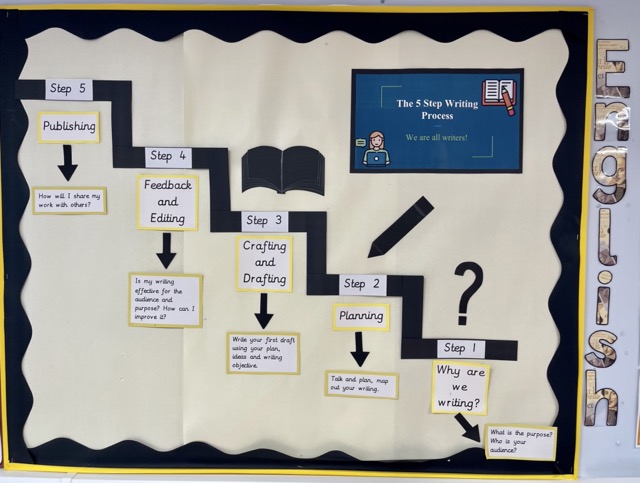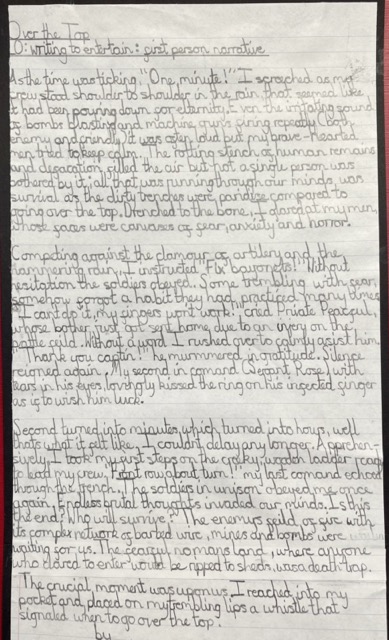Writing
"Either write something worth reading or do something worth writing."
 At Leighton, we cultivate a rich and varied writing curriculum that fosters a love for the written word and nurtures each pupil's ability to communicate effectively. Our focus on writing for purpose enables pupils to explore various forms, including writing to entertain, inform, persuade, and instruct, thereby equipping them with a versatile skill set. We recognise the importance of building cultural capital, and hence, we integrate a diverse range of texts and writing styles into our curriculum. This exposure helps our pupils appreciate different perspectives, understand the world around them, and express their thoughts and ideas in a more articulate and informed manner.
At Leighton, we cultivate a rich and varied writing curriculum that fosters a love for the written word and nurtures each pupil's ability to communicate effectively. Our focus on writing for purpose enables pupils to explore various forms, including writing to entertain, inform, persuade, and instruct, thereby equipping them with a versatile skill set. We recognise the importance of building cultural capital, and hence, we integrate a diverse range of texts and writing styles into our curriculum. This exposure helps our pupils appreciate different perspectives, understand the world around them, and express their thoughts and ideas in a more articulate and informed manner.
Our writing curriculum is intrinsically linked with reading. By exploring a variety of texts, our pupils not only enhance their vocabulary and comprehension but also understand the different purposes, audiences, and contexts of writing. This symbiotic relationship between reading and writing empowers pupils to experiment with their own writing styles and voices. Our curriculum is meticulously designed to align with the National Curriculum, ensuring a coherent progression of knowledge and skills across all key stages. We focus on gradually building pupils’ abilities, helping them master the basics before moving on to more complex aspects of writing. Each stage of learning builds on the last, ensuring a smooth transition and continual development.
the National Curriculum, ensuring a coherent progression of knowledge and skills across all key stages. We focus on gradually building pupils’ abilities, helping them master the basics before moving on to more complex aspects of writing. Each stage of learning builds on the last, ensuring a smooth transition and continual development.
Writing for Purpose & Audience
-
Writing to Entertain: We explore creative writing, delving into narratives, poetry, and plays, learning how to captivate and engage their audience.
-
Writing to Inform: We learn to convey information clearly and accurately, crafting non-chronological reports, articles, and explanatory texts.
-
Writing to Persuade: We teach the art of argumentation and persuasion, helping pupils present their points of view coherently and convincingly through essays, letters, and speeches.
-
Writing to Instruct: Pupils develop the ability to write instructional texts, creating clear, concise, and effective guidelines, procedures, and recipes.

